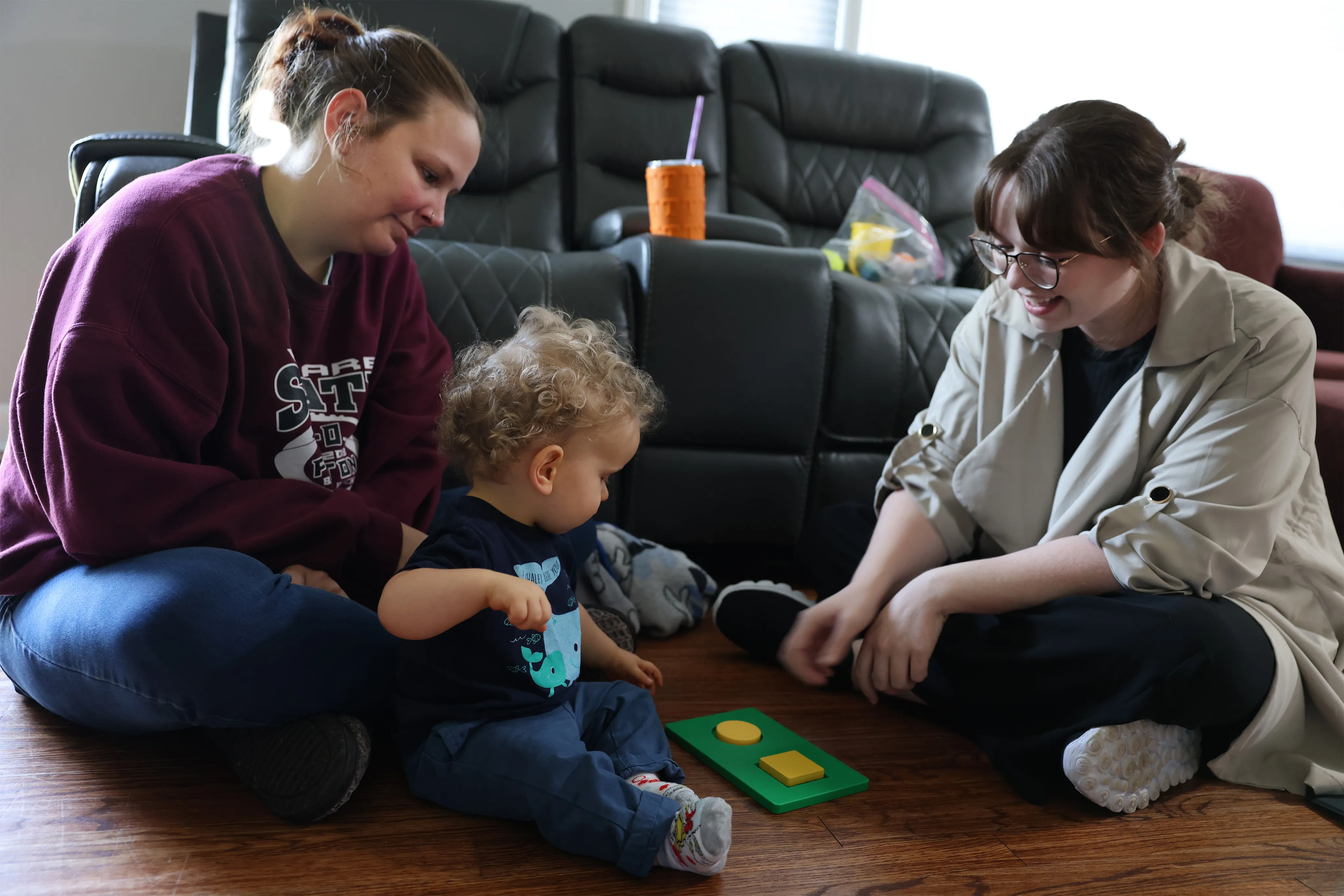Details coming soon
Sign up for updatesEnsuring the best start to life possible


Results at a glance
Need
Determine a baseline for children at risk of a developmental delay as early as possible
Response
6,919
Total eligibility and progress evaluations completed
Need
Children with delays are in need of further developmental therapies in order to achieve milestones for kindergarten readiness
Response
75%
Of children evaluated for a developmental delay were determined to be eligible for further intervention services
Need
Lay down a consistent standard of care with progress evaluations to set up each child for success
Response
2,222
Progress evaluations were completed
Early Childhood Assessments
Program Information
Documents and Forms
Frequently asked questions
If your child is showing signs of a disability or developmental delay, the first step is to fill out the Tennessee Early Intervention System's (TEIS) REFERRAL FORM. If your child meets the age criteria, an Early Childhood Evaluator will perform an assessment covering several domains of early childhood development. The results of the evaluation will be provided to TEIS, who will determine if you child meets eligibility criteria for the program.
Signal Centers' Early Childhood Evaluators use a tool called the Battelle Developmental Inventory 3rd Edition (BDI-3). BDI-3 is the only early childhood assessment that measures the five developmental domains from birth to seven years, 11 months of age: communication, social/emotional, adaptive, motor, and cognitive. An evaluation involves assigning your child a score for each domain (known as a Developmental Quotient or DQ). Your child's DQ will determine the severity of the delay, which is used by TEIS to determine if your child is eligible for the program.
In 2024, the federal government gave its approval for Tennessee to become the first state to offer early intervention services to children from birth until they reach school age. This extension of the program gives eligible families the option to receive services until the start of the school year following the child’s fifth birthday, if the child meets certain eligibility criteria. This is the full age range allowed for early intervention services through Part C of the Individual with Disabilities Education Act (IDEA).
The evaluation is typically completed in the family's home or a preferred community location.
When the Evaluator meets with your family, they will complete the BDI-3 evaluation, as well as hearing and vision screenings. The Evaluator will also talk in detail with you about your concerns for your child and will gather information about your child and family. The BDI-3 includes a caregiver interview, as well as structured activities with the child, so both caregiver and child will need to be present for the whole evaluation. The evaluation visit may last anywhere from 1-2 hours, depending on the age of the child.
TEIS' goal is to determine a child's eligibility within 45 days from the time the referral to the program was made.
Signal Centers provides the developmental evaluations needed by TEIS to determine eligibility for the program and to evaluate progressing development once enrolled in the program. Signal Centers provides the first point of contact once referral is made and is responsible for intake into the program.
Yes! TEIS can provide service coordination, developmental monitoring, funding for services, and connection to additional resources for eligible children. Your child may enroll in TEIS alongside other services. Conducting an evaluation is the first step to determine eligibility.
The Tennessee Department of Disability and Aging has extensive resources for families on their website.
No. The evaluation is provided at no cost to families.
A child may be evaluated multiple times (every four months) for eligibility, but no later than 45 days before their third birthday.
Signal Centers will only release results of your child's evaluation to TEIS and only with your signed consent.
Evaluators must hold at least a bachelor's degree in early childhood special education, early childhood education, child family studies (child development), early intervention, or a related field.
Hear from our community
Early Childhood Assessments
Meet our team
Early Childhood Assessments is funded by:

Stay connected
Stay up to date on what is happening with your favorite Signal Centers programs, agency events, volunteer opportunities, and much more.




















